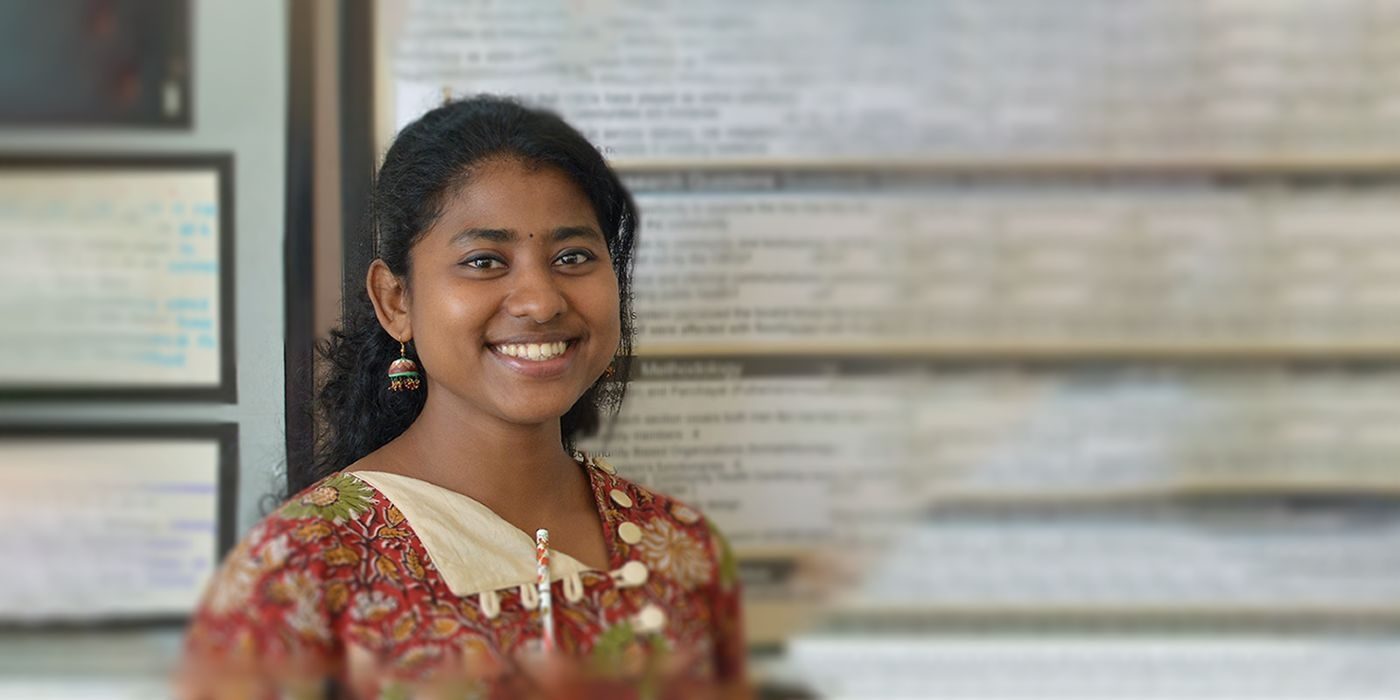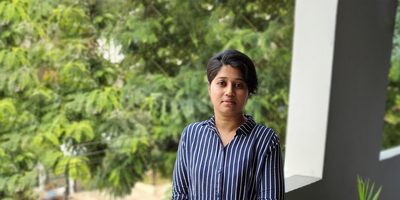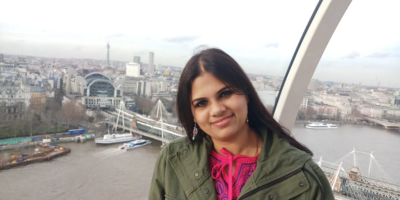
Meet Gloria Benny, Research Consultant at The George Institute India
Gloria Benny has been working with The George Institute for Global Health, India as a research consultant since June of 2019. She is involved in an implementation research study to enhance the role of community health workers in service utilization of tribal populations and in a women’s leadership study which is related to senior women leaders from the health system.
Q. Tell us a bit about your professional background?
I pursued a Masters in Development with Public Health specialization from Azim Premji University, Bangalore (2017-2019) and my Bachelor’s was in Medical Sociology from Christian Medical College, Vellore (2011-2014). The time between my Master’s and Bachelor’s, I worked at CMC Vellore and State Health Resource Centre (SHRC), Chhattisgarh for one year each. That was the beginning of my journey into the diverse field of public health.
While I was working with SHRC, Chhattisgarh, I was exposed to the discriminatory ground realities, underlying inequities and indicator differences among the tribal and non-tribal populations. That was the moment of realization about the hard-hitting realities and intersectional disadvantages that affect health outcomes. Precisely, this hard-hitting moment of realization nudged me to undertake my Master’s course in Development.
Q. What inspires you in the work you do and why?
The two years of Post Graduation, I got to learn the nuances Governmental and Non-governmental advocacy and how policy can be developed to bring forth various state/centre sponsored health and welfare schemes. This motivated me to get into the field of public health research as an initial step to have more cohesive understanding of the field. .
Q. What are you currently working on at TGI?
I have been working with The George Institute for Global Health, India since June of 2019. Currently, I am involved in an implementation research study to enhance the role of community health workers in service utilization of tribal populations. I am also involved in women’s leadership study which is related to senior women leaders in the health system.
My work needs a mix of desk-based and field inputs. The work largely comprises conducting interviews to get primary data from the officials and the experiences from the community mainly using focus group discussions, qualitative data analysis and tasks supplementing analysis.
At present, my location of work is in the district of Wayanad in Kerala, which has the state's majority tribal population. Handling research administration working with vulnerable populations, specifically the need to secure multiple permissions and work through natural calamities and disease outbreaks in the area taught me many lessons about how to work in challenging areas. Also, it was a great opportunity to work with the vulnerable community, to improve my skills in rapport building, also allowing me to learn about their multifaceted problems.
Q. What do you like most about working at The George Institute?
I strongly feel this is a place where we can utilize our strengths to the fullest and hone and improve the weaknesses. The organization strives to provide platforms for individual capacity building in order to better the work we do and also for one’s own career growth. The room you get to think independently and discuss it with one’s team members is excellent here.
The work culture has fascinated me as I work remotely, yet the ways we organize and convene meetings in order to stay well communicated with the team are definitely wonderful. The researchers are strictly disciplined on the ethics of accountability to the community, whom we rely upon the research inputs. Also, TGI gives us exposure to innovative and novel ways of engagement with the academic and general audience.
Q. How your work helps to improve the health of people?
Even though the research responses to improve public health are gaining momentum, there are still many grey areas to be focussed on and addressed in order to achieve health equity. I am fortunate to work for tribal populations, who have deprivations - socially and economically, which end up in health vulnerabilities. For them, having access to hamlet ASHA can definitely reduce the gaps to receipt of services. If we can improve the role of the community health workers in order to improve the health outcomes for tribals, we perhaps have a chance at reducing inequity. Also, this will serve to exercise their right to health.
Q. Has your day-to-day life changed since the corona virus crisis began? And how?
When the COVID-19 crisis started in the beginning of March, we had to reduce our field activities and work and then later it was completely suspended. At that point, I had to move back to my home within the state, a fair distance from my field site. The change in place has affected me quite severely as my daily routine and schedule are altered drastically.
Q. What does a normal day look like at work for you now? Has your work life changed at all due to the corona virus?
After setting a work space at home, I had to switch my work timings to see what will be the most convenient time to work. I tried working during night hours when all my family members were fast asleep. Although it seemed like a good time to work, I had to bring back the day work routine. Now the normal day for work has become stable after such trial and error.
Q. Has the crisis affected any of your work projects/programs? If so, how have you adapted to the situation?
The project currently I am working is affected to some extent in terms of carrying out the fieldwork. With the COVID-19 pandemic and lockdown, the case study we had been working for the project, has been stopped mid-way, leaving us with partially collected data. We hope to pick up from here soon when the lockdown is eased a bit and circumstances are better.
Q. What kind of support do you need from TGI during this period?
As I am away from my office and my colleagues, at times the motivation goes down and I feel a bit exhausted to work. So I personally try to talk to my colleagues (who are not part of my Project also) and recharge myself by motivating each other. Team casual catch up calls help me to keep connected with the happenings around the project and the organization.
Q. Any advice for your colleagues during these challenging times?
It is a trying time where many of us are having difficulties to work from home, perhaps at their personal spaces too. Hence, we should make a conscious effort to stay connected with everyone as much as possible, and lend an ear to those in need during such desperate times. Let us reach out and help each other to stay motivated!



